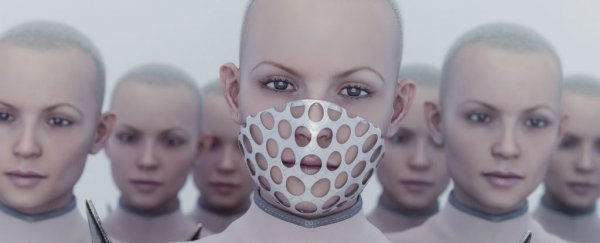As humans, we've got a lot of serious thinking to do when it comes to the kinds of biological tweaks we'll be able to make in the future.
Gene-editing technology is already allowing us to 'edit out' certain diseases in mice, and human embryos are being genetically modified in the hopes of finding better treatments for infertility. So what's going to happen when we figure out how to clone a person's brain down to its exact neural structure?
As the video below by MinutePhysics explains, cloning in physics means something quite different to cloning in biology.
In biology, if a plant or an animal - such as Dolly the Sheep - has the same DNA, it is considered a clone. And these clones can end up as pretty successful life forms.
While Dolly herself only made it to six years old - half the average lifespan of a sheep - four clones derived from Dolly's cell line are currently alive and healthy at nine years old.
In physics, if you want to claim that you've cloned something, you're going to have to do a lot better than Dolly.
It's not just the DNA that has to be exactly the same - the relative positions, movements, and energy levels of every particle, and all of their bonds and interactions, need to be exactly the same too.
It might seem like a very difficult - but achievable - feat to create a perfect clone by physics standards, because in theory, all it really requires is identifying all the different pieces and where they should go.
But perfect cloning is, and always will be, fundamentally impossible.

As Henry says in the video, "I don't simply mean that we don't know how, or haven't succeeded yet because it's really hard to do in practice, I mean it has been mathematically proven that perfect cloning can't be achieved, even in principle."
The problem comes down to the 'spooky' weirdness of quantum particles, with their ability to be in two states at once - think Schrödinger's cat - and all the wonderful variables that come with that.
I'll let MinutePhysics run you through the ridiculous maths involved in trying to keep perfect cloning and quantum physics intact, but let's just say our heads are still spinning from all that madness.
And hey, even though it kinda sucks to be told that something is impossible so we shouldn't even try, it's probably a good thing that perfect cloning will never be something us humans will have to grapple with.
Because as this TED talk explains, humanity is going to be faced with some actual evolutionary problems in the not-too-distant future, and that's the real threat:

